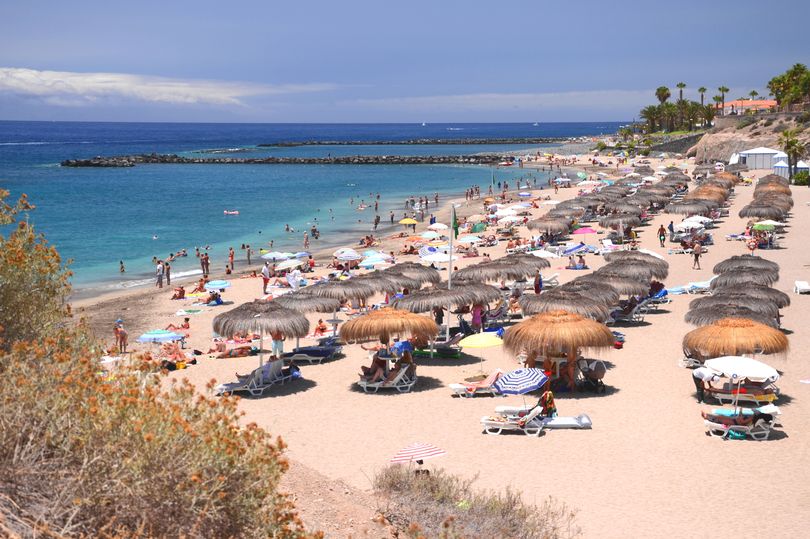New laws for tourists in Spain will have a ‘very negative’ impact on the economy, an expert has warned.
The new rules, which came into force on Monday (December 2), mean that tourists arriving in Spain now have to provide more paperwork. Accommodation providers and car hire firms are required to send customers’ personal information, such as passport details, home addresses and payment methods, to the government under the new laws.
The new law has been introduced for national security reasons, according to the Spanish government, but tourism experts have raised privacy concerns and warned it could lead to delays at check-in desks.
READ MORE: Jet2 issues four-day travel alert as they warn passengers of ‘disruption’
Now, a travel boss in the Balearic islands has said that some tour operators will stop selling certain types of holidays altogether due to the new rules in force.
Pedro Fiol, the president of the Aviba association of travel agencies, told the Majorca Daily Bulletin that travel firms selling holidays in specific sectors may be unable to continue. He said bookings for large conference events or sport teams may be among those affected.
Mr Fiol, who has been vocal in his criticism of the new registration system, explained: “It is not possible to give so much data so far in advance. For example, when a company reserves a hotel to hold an event it doesn’t know exactly who will attend. How is it going to provide more than 40 pieces of information in 24 hours if it doesn’t know who will be participating.
“The same thing happens with sports teams. These types of reservations are made months or even years in advance, based on forecasts, but these are not confirmed names.”
He said the loss of these customers would be “very negative for the Balearic economy”, adding that they often bring in more money than the “average tourist” as they come during quieter seasons and “don’t contribute to generating the feeling of saturation”.
Both tourists and Spanish residents will be required to provide the information, which includes phone numbers, email addresses and the number of travellers for anyone over the age of 14, which will get submitted to the Ministry of the Interior.
In a statement, the Ministry of the Interior said the regulations were “justified for the general interest for the security of citizens against the threat of terrorism and other serious offences committed by criminal organisations”.
